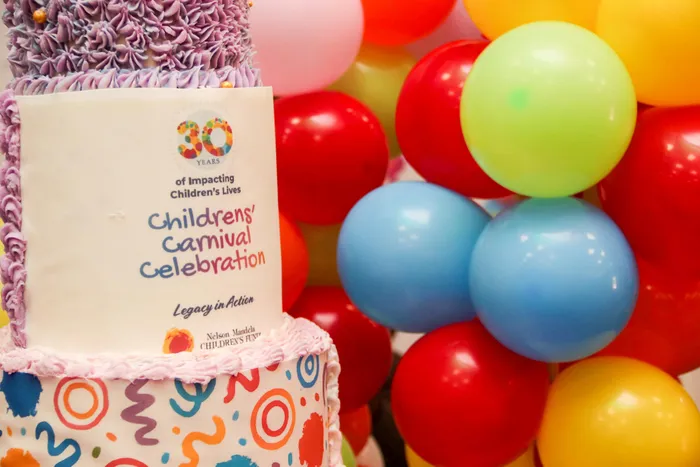Breaking the cycle: South African Child Gauge 2025 calls for integrated approach to violence against women and children

The Nelson Mandela Children's Fund celebrated its 30th anniversary with the release of the Child Gauge Report 2025.
Image: Supplied
There is increasing global evidence that violence against women and violence against children are deeply interconnected. These forms of violence often co-occur in the same households, share common risk factors and are perpetuated by societal norms that legitimise or tolerate violence.Yet, South Africa's programmes, research and policies on violence against women (VAW) and violence against children (VAC) have historically been siloed – with different strategies, terminologies, and lead agencies.
The findings of the South African Child Gauge 2025, released today, argue that South Africa must adopt an integrated approach to address the needs of both women and children affected by violence, and to break the intergenerational cycle of harm.
"In every country, violence against women and children carries profound individual, social and economic costs. The long-term effects on individuals are devastating: children who experience violence face a higher risk of mental health issues, substance abuse, and chronic health conditions. They also struggle with learning and socialisation, hindering their future potential," explained Lucy Jamieson, Senior Researcher at the Children's Institute, University of Cape Town (UCT).
Speaking at the launch of the Report, Dr Linda Ncube-Nkomo, CEO of the Nelson Mandela Children’s Fund, said:“It is also essential to include digital safety and media literacy in school curricula (and policies). Technology is expanding the reach and impact of violence. Digital platforms intensify risks, perpetuate and mirror the types of violence againstwomen and children that occur offline.”
The Child Gauge Report is produced in partnership with UNICEF South Africa, the Nelson Mandela Children’s Fund, the DSI/NRF Centre for Excellence in Human Development (University of the Witwatersrand), The LEGO Foundation, the Standard Bank Tutuwa Community Foundation, and the Ford Foundation.

The Nelson Mandela Children's Fund is one of the co-sponsors of the Child Gauge Report 2025.
Image: Supplied
The Report said violence places an enormous burden on health, social services and criminal justice systems.
"The financial impact is staggering – violence against children was estimated to cost nearly 5% of South Africa's gross domestic product in 2015.
The experiences of violence among children are rarely isolated events. Experiencing violence in early childhood – including witnessing it – increases the risk of girls becoming victims and boys being perpetrators of violence later in life. Current data paints a disturbing picture:
- 24% of women aged 18 and older have experienced physical and/or sexual intimate partner violence, according to the National Gender-Based Violence Prevalence Study.
- 42% of children have experienced some form of maltreatment by an adult caregiver.
- Community-based studies show violence is more prevalent in townships and rural areas, where children repeatedly experience multiple forms of violence.
"Patriarchy is a social system in which men hold power and authority, supported by societal norms and behaviours that favour men, normalise the use of violence and marginalise women and children," explained Prof Mercilene Machisa, Senior Specialist Scientist, South African Medical Research Council.
Communities play a vital role in challenging harmful societal norms. Achieving lasting change requires ongoing participatory community engagement with all members – including faith leaders, traditional leaders, men and boys – with a priority given to amplifying women's and children's voices. The report highlights promising practices such as gender-transformative programming that can help promote healthier, non-violent relationships in families, schools and communities. These programmes explicitly challenge harmful beliefs used to justify violence and promote more caring and equitable relationships.
"It is crucial to intervene as early as possible to prevent further harm. This includes intervening early in the first 1,000 days of life – and even before violence begins by addressing the structural drivers," said Tracey Henry, CEO of Standard Bank Tutuwa Community Foundation.
To work effectively at the intersections of violence against women and children, experts recommend:
- Recognising that these forms of violence are interconnected.
- Embedding prevention and response into existing systems including health, education, and social development.
- Responding to the needs of both women and children simultaneously through integrated services.
- Adopting a trauma-informed approach to ensure that women and children feel safe, supported and in control.
"Many boys are silent witnesses to domestic violence and internalise harmful gender norms. They benefit from safe spaces where they can confront traditional views about men and fathers and explore positive masculinities grounded in care and respect," said Nicky Le Roux, Senior Programme Officer, Ford Foundation."
Intervening early to break the cycle of intergenerational violence alleviates the burden on health, social and criminal justice services. It also enhances human capital and social cohesion, while boosting economic development," said Irfan Akhtar, UNICEF South Africa Deputy Representative.
The Children's Institute has published the South African Child Gauge annually since 2005 to track the realisation of children's rights and support evidence-based policy and programming.
Related Topics: